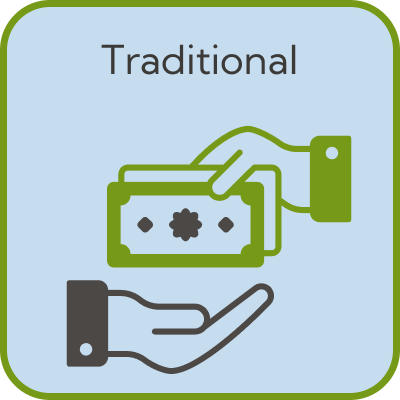Fundraise by participating in Self-organised 10,000 steps-a-day challenge!
Self-organised 10,000 steps-a-day challenge
Imagine embarking on a 10,000 steps-a-day challenge where the simple act of walking could have a profound impact on your selected charity. This activity involves you walking 10,000 steps every day for a set period, such as a week or a month, while raising funds through sponsors who support your effort either through fixed donations or pledges per number of steps. Not only is this challenge a motivator for maintaining a healthy lifestyle, but it provides a platform for generating awareness and funds for a cause that matters to you.
Walking 10,000 steps a day is an excellent event for charitable fundraising because it is accessible to a wide audience. Almost everyone can participate, regardless of their fitness level, making it inclusive and scalable. The simplicity of the activity means you can focus on rallying support and sharing the progress of your cause, rather than dealing with complicated logistics. Moreover, this event taps into the growing public interest in fitness and health, aligning personal goals with charitable giving.
To organize this event effectively, start by setting clear personal goals and choosing a charity that resonates with your values. Use a reliable step-tracking device or app to monitor your progress. Transparency is crucial, so regularly update your sponsors on your achievements through social media or a dedicated fundraising page. Engage with your supporters by sharing not only your step counts but also compelling stories about the charity you are helping. Encourage interaction by asking your network to guess your total steps for a chance to win a small, personal reward.
For the Sponsivity platform, the Distance Challenge model is perfectly suited for the 10,000 steps-a-day event. By setting up a fundraising page where sponsors can pledge a donation based on how many steps you take, you can motivate yourself to meet or even exceed your goal. The Wager Challenge could also enhance your fundraising efforts. For example, you could commit to doubling the challenge or adding an extra week if you reach your fundraising target before the end date. This variation adds excitement and encourages more donations as people become keen to see you push your limits.
In conclusion, a self-organized 10,000 steps-a-day challenge not only boosts your physical health but also has a significant impact on your chosen charitable cause. With strategic planning and engagement, along with the optimal use of platforms like Sponsivity, your walking challenge can become a successful fundraising venture.

Sponsivity offers you several ways to raise for Self-organised 10,000 steps-a-day challenge


🚶 Walking – An Accessible & Inclusive Fundraising Challenge
Walking is one of the most accessible and inclusive ways to fundraise, making it ideal for participants of all ages and fitness levels. Whether it’s a personal step challenge, a long-distance trek, or a community walking event, walking-based fundraising is a great way to raise money while promoting physical activity and well-being.
Why Walking Works for Fundraising:
- Inclusive & Low-Impact: Walking is suitable for everyone, from young children to seniors, making it perfect for family-friendly and corporate fundraising events.
- Endurance & Achievement: Long-distance walks, such as marathon walks, charity hikes, or multi-day treks, provide a strong personal challenge that attracts donor support.
- Social & Team-Oriented: Walking challenges can be done individually or in groups, making them great for workplace fundraising, school events, or community initiatives.
- Easy to Track & Share: Fundraisers can log their daily steps, distance, or time, sharing progress with supporters through social media and fundraising pages.
Examples of Walking-Based Fundraisers:
- Step Challenge: “I’m walking 10,000 steps every day for a month—sponsor me per step!”
- Distance Challenge: “Support me as I trek 50 miles for charity!”
- Themed Walks: Fancy dress charity walks, night-time city walks, or virtual walking challenges add extra engagement.
Walking challenges offer a fun, healthy, and accessible way to raise funds while encouraging people to stay active and support a great cause!
Set bespoke rewards that suit walking
- Wear donor names on a walking vest
- Display a personalised thank-you sign and on the walk
- Videoed song dedicated to your donation
💪 Physical Endurance – A Test of Strength & Stamina for Charity
Physical endurance challenges are some of the most demanding and rewarding ways to raise money for charity. These events push fundraisers to their limits, whether through long-distance running, cycling, swimming, or multi-hour challenges, making them highly compelling for donors. The harder the challenge, the more supporters are inspired to give.
Why Physical Endurance Works for Fundraising:
- High Engagement: Donors love to support fundraisers who commit to extreme endurance challenges, seeing their dedication as a strong reason to give.
- Scalable & Inclusive: Endurance events can range from personal step challenges to Ironman triathlons, making them accessible for all fitness levels.
- Long-Term Fundraising Potential: The extended training and preparation period allow fundraisers to build momentum and keep donors engaged.
- Great for Time & Distance Challenges: Fundraisers can challenge themselves to beat a time, achieve a distance, or push beyond their limits for charity.
Examples of Physical Endurance-Based Fundraisers:
- Marathon or Ultra Run: “Help me raise £2,000 as I take on my first 100K ultra-marathon!”
- Long-Distance Cycle Challenge: “I’m cycling 1,000 miles across the UK for charity—sponsor me per mile!”
- Extreme Fitness Challenge: “I’m doing 24 hours of non-stop exercise—every donation pushes me further!”
Physical endurance fundraisers inspire, challenge, and motivate, creating an unforgettable experience for participants and a powerful reason for supporters to donate.
Set bespoke rewards that suit physical endurance
- Playlist pick - any song of your choice repeated 3 times on my playlist!
- Photo eating your chosen race snack (max 50g!)
- 20 press-ups after the finishline
📅 Self-Organised – Fundraising on Your Terms
Self-organised fundraising challenges put you in control, allowing fundraisers to create a challenge that’s unique, personal, and tailored to their passions. Unlike organised events, self-organised challenges offer complete flexibility—whether it’s a solo endurance test, a creative personal challenge, or a community-driven activity.
Why Self-Organised Challenges Work for Fundraising:
- Full Flexibility: Choose the activity, location, and timing that works best for you, making fundraising accessible and achievable.
- Personal & Meaningful: Custom challenges allow fundraisers to connect with their audience by choosing something significant to them.
- Low-Cost & Inclusive: Without the need for event entry fees or logistics, anyone can participate, making it easy to involve family, friends, or colleagues.
- Perfect for Challenge Chain & Wager Models: Self-organised challenges can inspire others to join in, spreading the impact through viral nominations.
Examples of Self-Organised Fundraisers:
- Personal Running Challenge: “I’ll run 5K every day for a month—support my journey!”
- DIY Fitness Marathon: “I’m doing 1,000 push-ups in a day—every donation pushes me further!”
- Creative Challenge: “I’ll cycle across the country dressed as a superhero—help me hit my fundraising goal!”
Self-organised challenges allow fundraisers to turn their creativity, passions, and dedication into real impact, making it a powerful and accessible way to raise money for a cause.
Set bespoke rewards that suit self-organised event
- Rename the challenge in your honour
- Bring home-baked cookies to the finishline